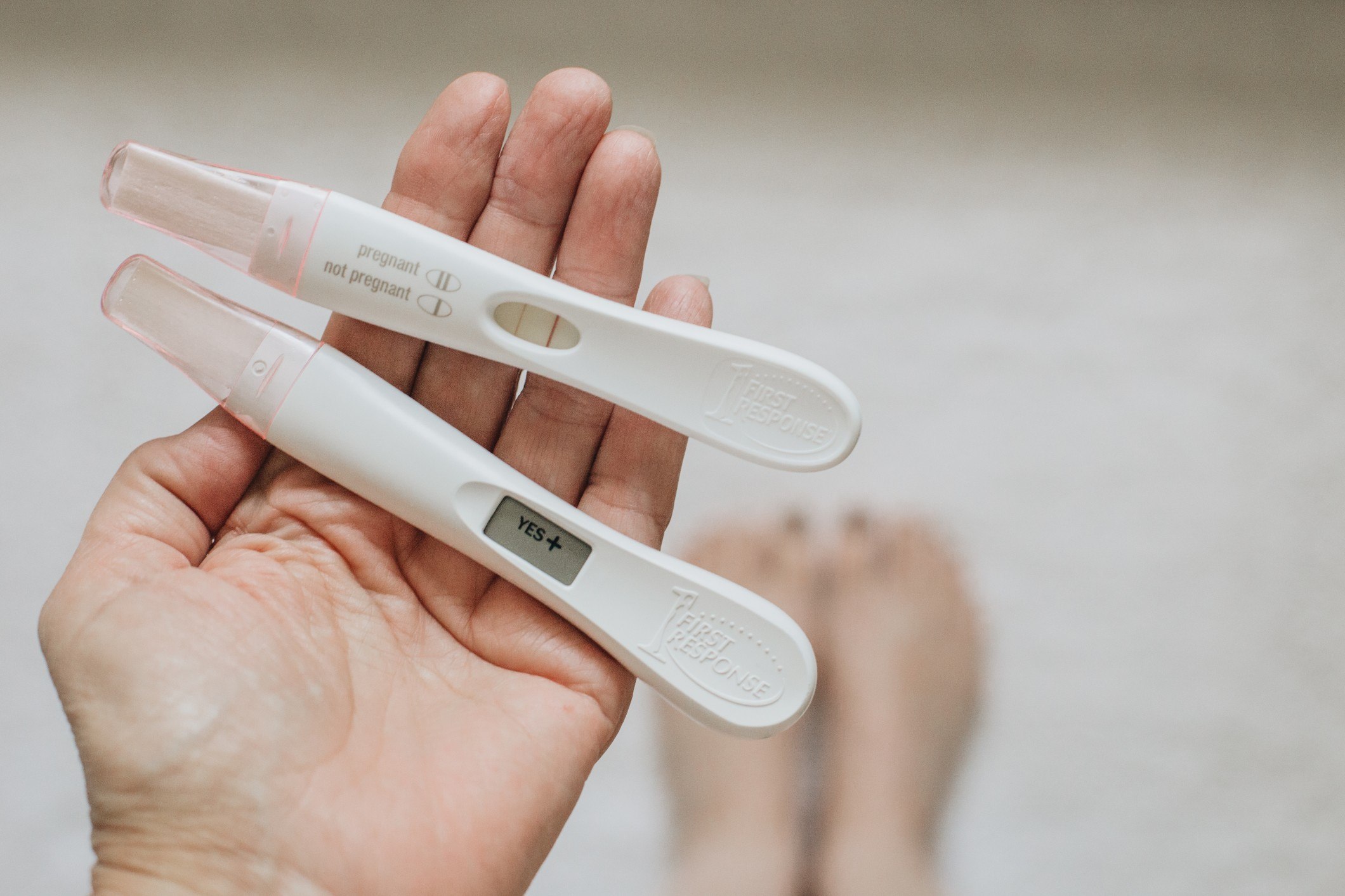9 essential questions to ask during your first prenatal visit
From 'Who will deliver me?' to 'Can I keep exercising?', write these down.

Aleksandar Nakic/Getty Images
You’re pregnant! You confirmed it with a ridiculous number of home pregnancy tests, started dreaming of baby names… and are wondering what to do next.
The first few weeks of your pregnancy can be one of the most exciting and overwhelming of your life, filled with a seemingly infinite number of questions. Take a deep breath, grab a pencil and write down some of those pressing questions, because you’ll want to have them with you at your first prenatal visit with your obstetrician or midwife.

The first prenatal visit usually happens between weeks 8 and 10, but it’s a good idea to let your provider know as soon as you find out you’re pregnant.
Here are the questions you should ask during your first prenatal appointment
1. Who will deliver me?
At your first visit, it’s a good idea to meet the doctors and midwives in the practice and to get a feel for their birth philosophy. The hospital they deliver at, the number of providers in the group and the options you have for your birth are important details you’ll want to know to help you decide whether the group is a good fit for you.
2. How much weight should I gain?
This depends on your pre-pregnancy weight. Your provider will calculate your BMI to help guide the discussion about healthy weight gain during pregnancy, though remember that these are just guidelines—not prescriptive parameters. As a general rule, women at a healthy weight should gain between 25 and 30 pounds, women who are underweight should gain nearly 40 pounds and women who are overweight or obese should gain 11 to 20 pounds during their pregnancy.
3. Can I continue exercising?
If you have a pre-pregnancy regimen you enjoy, your doctor will likely advise you to continue. If you do not yet have an exercise regimen, they will probably encourage you to start one! Exercise helps maintain appropriate weight gain during pregnancy, and some studies have shown that it may decrease your risk for gestational diabetes, preeclampsia and cesarean delivery.
4. What should I do about my history with certain health conditions?
One of the most important things to talk with your provider about during your first prenatal visit is your health history. Pregnancy is generally a state of wellness, but can put great stress on your body, exacerbating certain health conditions. Some common conditions that affect pregnancy include diabetes, high blood pressure, seizures, hypo- and hyperthyroidism and depression, but be sure to tell your OB about any health issues you’ve had, as special medical adjustments may be necessary. Also let them know about any surgeries you’ve had or any problems with antibiotics or anesthesia.
5. Are all my medications safe for pregnancy?
Take a list of all the medications, herbs and supplements you are currently taking to your appointment. Some medications can cause birth defects or could negatively affect your pregnancy, so your provider may have you stop or change what you’re taking.
6. Should I be taking a prenatal vitamin?
Yes! While it’s best to start taking prenatal vitamins prior to conception, it’s never too late to start. Ask your doctor whether there is a prenatal vitamin they recommend or whether they know of one that’s covered by your insurance.
7. What type of genetic screening should I get?
There are many different options for genetic screening that your doctor can offer you. These are based on how far along you are in your pregnancy and what risk factors you have. Your doctor should be able to outline all the tests available to you—just be sure to clarify which ones are covered by your insurance.
8. Should I get a Covid vaccine?
Yes. A growing body of research shows that pregnant women with Covid symptoms are 40% more likely to deliver their babies prematurely and are at least two to three times more likely to be admitted to the ICU with severe symptoms than non-pregnant people. All major U.S. health organizations and maternal-fetal associations strongly urge pregnant women or those thinking about becoming pregnant to get vaccinated against Covid. Studies also show that getting the Covid vaccine in pregnancy can provide your newborn with protection against the virus. Be sure to talk to your doctor about this, too.
9. Who should I call if I have questions or concerns?
Most practices have a phone number where a nurse or provider can be reached 24 hours a day if you have questions or concerns, or if you think you’re in labor. This is important, because babies tend to not respect business hours, so make sure you have the after-hours emergency number before you leave.
If your first prenatal visit flies by and you happen to forget a question or two, don’t worry. You’ll see your provider many more times before your due date and should have lots of opportunities to ask more questions.
Haven’t taken a birth class yet, mama? We created the perfect one for you—and we’ll guide you through everything you need to know. Sign up for Motherly’s birth class here.
A version of this story was originally published on April 18, 2020. It has been updated.





